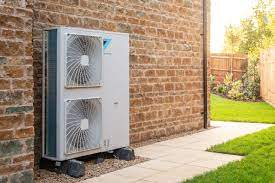The HVAC industry is booming. As temperatures rise and buildings become more complex, the demand for skilled technicians to install, maintain, and repair heating, ventilation, and air conditioning systems continues to grow. But how much do these essential workers actually earn? This comprehensive guide delves deep into the world of HVAC tech salaries, exploring the factors that influence pay, providing detailed insights into earning potential, and answering frequently asked questions about this rewarding career path.
Factors Influencing HVAC Tech Salaries
HVAC technicians’ earnings are influenced by a variety of factors, making it difficult to give a single definitive answer to the question of how much they make.
Here’s a breakdown of the key elements that play a role:
- Experience: As in most trades, experience is king in the HVAC world. Entry-level technicians with limited experience will naturally earn less than seasoned professionals with years of hands-on work under their belts. With each year of experience, technicians gain valuable skills, knowledge, and expertise, allowing them to command higher salaries.
- Location: Where you work matters significantly. Metropolitan areas with a high cost of living and strong demand for HVAC services typically offer higher salaries. For instance, an HVAC technician in New York City will likely earn more than one in a rural area with lower living costs. Regional climate also plays a role; areas with extreme temperatures tend to have higher demand for HVAC services, potentially leading to better pay.
- Industry: The specific industry a technician works in can also impact their earnings. Technicians employed by large manufacturing facilities or commercial building management companies may earn more than those working for residential HVAC contractors. Union membership can also influence pay, as unions often negotiate for higher wages and benefits for their members.
- Specialization and Certifications: HVAC technicians with specialized skills or advanced certifications often earn a premium. Specializations like refrigeration, geothermal systems, or commercial HVAC can increase earning potential. Industry certifications, such as those offered by NATE (North American Technician Excellence), demonstrate a technician’s competency and professionalism, making them more attractive to employers and potentially leading to higher pay.
- Employer: The size and type of employer can also affect a technician’s salary. Large, well-established companies often have more structured pay scales and benefits packages compared to smaller businesses. Some employers may also offer performance-based bonuses or profit-sharing programs that can boost overall earnings.
Breaking Down HVAC Tech Earnings
While the factors mentioned above create a range of possible salaries, let’s look at some general figures to provide a clearer picture of HVAC tech earning potential.
- Entry-Level Technicians: Those just starting out in the field can expect to earn an average annual salary between $30,000 and $40,000. Apprenticeships and entry-level positions provide valuable on-the-job training and experience, gradually leading to higher earning potential.
- Mid-Career Technicians: With 5-10 years of experience, HVAC technicians can typically earn between $45,000 and $65,000 per year. As they gain expertise and take on more complex tasks, their value to employers increases, reflected in their pay.
- Experienced Technicians: Highly experienced technicians with over 10 years in the field and specialized skills or certifications can earn upwards of $75,000 per year. Some senior technicians, especially those in management roles or with specialized expertise, may even earn six-figure salaries.
Beyond the Base Salary: Additional Earning Opportunities
In addition to their base salaries, HVAC technicians often have opportunities to increase their earnings through:
- Overtime Pay: Due to the nature of the work, HVAC technicians often work overtime, especially during peak seasons or in emergency situations. This overtime work is typically compensated at a higher hourly rate, providing a significant boost to earnings.
- Performance Bonuses: Many employers offer performance-based bonuses to reward technicians for exceeding expectations, meeting specific targets, or providing exceptional customer service. These bonuses can add a substantial amount to a technician’s annual income.
- Commission: Some HVAC companies offer commission-based pay structures, where technicians earn a percentage of the revenue generated from the jobs they complete. This can be a highly motivating factor and can lead to significantly higher earnings for driven technicians.
- Side Work: Many experienced technicians also take on side jobs or freelance work during their free time, providing additional income and flexibility. This can be a great way to supplement their regular earnings and build a strong reputation in the community.
Related: Do You Need to Replace Ductwork When Replacing Your AC? A Comprehensive Guide
Frequently Asked Questions about HVAC Tech Salaries

-
What is the job outlook for HVAC technicians?
The job outlook for HVAC technicians is exceptionally bright. The U.S. Bureau of Labor Statistics projects a 13% employment growth for HVAC mechanics and installers from 2021 to 2031, much faster than the average for all occupations. This growth is driven by several factors, including an aging workforce, increasing construction of new buildings, and the growing popularity of energy-efficient HVAC systems.
-
How can I increase my earning potential as an HVAC technician?
To maximize your earning potential in the HVAC field, consider these strategies:
- Gain Experience: The more experience you have, the more valuable you become to employers. Seek out opportunities to work on diverse projects and gain exposure to different types of HVAC systems.
- Pursue Advanced Certifications: Obtaining industry certifications, such as those offered by NATE, can demonstrate your expertise and commitment to quality, making you a more desirable candidate for higher-paying positions.
- Specialize in a High-Demand Area: Consider specializing in a niche area like refrigeration, geothermal systems, or commercial HVAC. These specializations often come with higher earning potential due to the increased demand for skilled technicians in these areas.
- Develop Strong Communication and Customer Service Skills: Excellent communication and customer service skills are essential for success in the HVAC industry. Building strong relationships with clients can lead to repeat business and referrals, ultimately boosting your earnings.
- Consider Relocating to a High-Demand Area: If you’re willing to relocate, consider moving to a metropolitan area with a high cost of living and strong demand for HVAC services. These areas typically offer higher salaries to attract qualified technicians.
-
Is an HVAC technician career a good choice for me?
If you enjoy working with your hands, solving problems, and have a strong mechanical aptitude, a career as an HVAC technician could be a great fit. This field offers stable employment, competitive salaries, and the satisfaction of helping people stay comfortable in their homes and workplaces.
-
How do I become an HVAC technician?
There are several paths to becoming an HVAC technician:
- Apprenticeships: Many HVAC companies offer apprenticeships, which combine on-the-job training with classroom instruction. Apprenticeships typically last 3-5 years and provide a comprehensive education in the trade.
- Trade Schools and Community Colleges: Vocational schools and community colleges offer HVAC programs that provide theoretical knowledge and hands-on training. These programs can typically be completed in 1-2 years.
- Military Training: The military offers HVAC training programs that can prepare individuals for a career in the field. Veterans with HVAC experience are often highly sought after by civilian employers.
-
What are the working conditions like for HVAC technicians?
HVAC technicians often work in a variety of environments, including residential homes, commercial buildings, and industrial facilities. The work can be physically demanding, requiring lifting, bending, and working in confined spaces. Technicians may also be exposed to extreme temperatures, hazardous materials, and loud noises. However, many technicians find the work to be rewarding and enjoy the challenges and variety it offers.
Related: Heat pump myths
The Future of HVAC Tech Salaries
The future looks bright for HVAC technicians. As technology continues to advance and the demand for energy-efficient HVAC systems grows, skilled technicians will be in high demand. Emerging trends like smart home technology, renewable energy integration, and the increasing complexity of HVAC systems will require technicians to continually update their skills and knowledge. This ongoing demand for skilled labor is likely to drive salaries even higher in the years to come.
Conclusion
Choosing a career as an HVAC technician offers a promising path with competitive salaries and strong job security. While earnings can vary based on several factors, the potential for a rewarding and well-compensated career is undeniable. By gaining experience, pursuing certifications, and staying current with industry trends, aspiring and current HVAC technicians can position themselves for success and maximize their earning potential in this essential and growing field.




